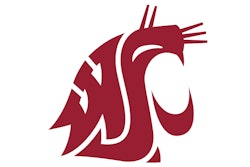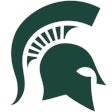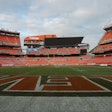
A University of Kansas-hired consultant has reportedly recommended that KU shrink the size of David Booth Kansas Memorial Stadium to 39,839 seats, but athletic director Travis Goff predicts that won’t be what ultimately happens.
As reported by KUsports.com, the consultant's recommendation, which went public late last week, would make Memorial Stadium the smallest football venue in the Big 12 Conference. The stadium currently seats 47,233, though it rarely is filled to capacity.
“Love our consultants but capacity will be over 40K,” Goff said via Twitter early Friday morning, according to KUsports.com. “This project will have something for everyone — affordable tickets, the best premium seating, real home field advantage. Oh yeah, and parking & tailgating are key priorities. We’re all over it Hawks — remember, I’m one of you.”
KU on Thursday began seeking proposals from developers who want to work with the university on a gateway project to renovate the football stadium and add a conference center, hotel, concert venue, student housing, and restaurants and retail to the university property surrounding the stadium.
According to KUsports.com's Chad Lawhorn, consultants with Hunden Strategic Partners recommended the smaller stadium for a variety of reasons, including the space constraints KU faces in fitting all of the aforementioned desired amenities on the relatively small site at the northern edge of campus.
That said, the consultants also contended that KU would be well served by the smaller capacity stadium. The consultants noted that KU football averaged 26,610 fans from 2015 through 2019, which was a period of few victories for the team. Even in 2022, when the football program became nationally ranked and bowl bound again, the team averaged fewer than 35,000 fans per game.
"However, the consultant’s report didn’t spend any time talking about attendance totals during KU’s previous heyday during the Mark Mangino era when KU had strong fan interest as a nationally ranked program and an Orange Bowl-winning team," Lawhorn wrote. "In 2006, KU officials announced the season average was just over 44,000 per game.
"The idea of KU dropping below 40,000 seats in its stadium seemed to catch many fans off guard, as several social media posts said such a reduction of more than 7,000 seats from KU’s current total sent a poor message about what KU thought of its prospects in the football world."
Goff’s tweet didn’t rule out the possibility that KU will reduce its capacity, which has become a trend in stadium design and renovation. Instead, Goff only predicting the total would remain above 40,000 seats.
KU chancellor Douglas Girod seems less concerned about stadium seating capacity and more focused on finding the right partner to help the university develop the Campus Gateway project.
“What we are looking for right now is a developer who can help us think about all the possibilities from all the feedback we are getting and how do we put all of those pieces and blocks together in one cohesive project,” Girod said Friday.





































